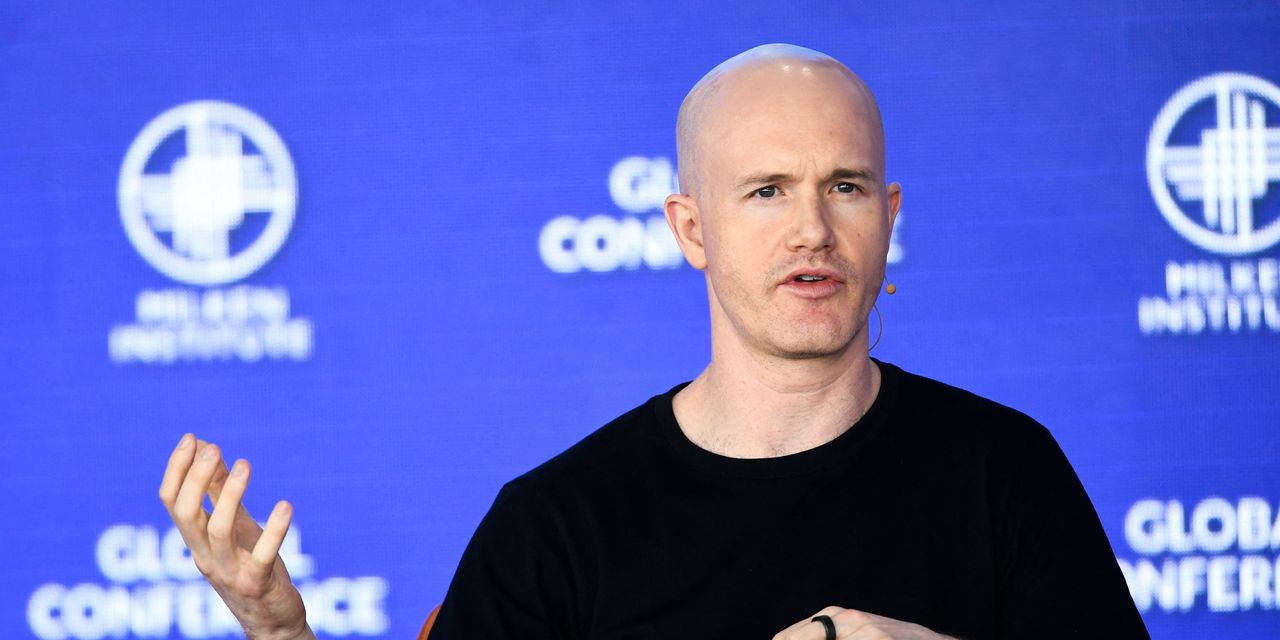Crypto entrepreneurs from around the country are arriving in Washington, D.C., this week, joining Coinbase CEO Brian Armstrong to lobby lawmakers for legislation they say could bring much-needed regulatory certainty to the industry.
The group hopes to convince lawmakers to take up bipartisan legislation passed this summer by the Republican-led House Financial Services Committee and House Committee on Agriculture that would create a new regulatory framework for digital assets that would open up less burdensome paths for crypto companies to come into compliance.
“Crypto is happening in every community across the country,” Kara Calvert, head of U.S. policy at Coinbase told MarketWatch. “It is an industry that’s creating jobs, affecting real people and real families, and that’s what we want to get across.”
Coinbase
COIN,
helped organize Stand with Crypto Day to take place Wednesday, Sept. 27, in order to raise awareness of what it says are the diverse group of Americans who hold crypto and the economic benefits of the new technology.
The event will coincide with an oversight hearing at the House Financial Services Committee, where Securities and Exchange Commission Chair Gary Gensler will answer lawmakers’ questions about his aggressive oversight of an industry that he has said is rife with “hucksters, fraudsters, scam artists and Ponzi schemes.”
Marlon Williams, founder of the Atlanta Blockchain Center, a crypto-focused business incubator, is one of the entrepreneurs coming to D.C. to meet and lobby lawmakers, and he says he is going to combat these perceptions.
“It’s so disheartening to see institutions in this country proclaim that crypto is a scam,” he said in an interview. “I live this thing every single day, and I don’t encounter the scammers these people are talking about.”
Nina Blankenship and Lisa Francoeur are founders of Crypto Tutors LLC, a company that provides crypto- and blockchain-education programs for businesses that want to train their employees on the technology or incorporate it into their products.
They told MarketWatch in an interview that they are traveling to Washington in the hopes of teaching lawmakers that the crypto economy employs more than just software engineers and financial-services workers.
Crypto Tutors also organizes the annual Web3 Diversity Conference aimed at highlighting crypto entrepreneurs from diverse backgrounds — a topic important to Blankenship and Francoeur as women of color in an industry often seen as dominated by men.
“Coming from a minority group, we know that access to financial services is more difficult for the Black community,” Francoeur said. “When we think about the democratization of access to wealth and wealth building, crypto has posed an interesting opportunity for the disenfranchised.”
A recent Pew Research Center Survey showed that 24% of Asian adults and 21% of Black or Hispanic adults say they have ever invested in or used a cryptocurrency, compared with 14% of White adults.
But experts say the volatility of cryptocurrencies like bitcoin
BTCUSD,
and ether
ETHUSD,
— and the fact that they produce no income in the form of interest payments or dividends like stocks or bonds do — means that they are not a reliable path to wealth-building in themselves.
Congress is also considering legislation to regulate so-called stablecoins, or cryptocurrencies that aim to track the value of government-issued money like the U.S. dollar, with the House Financial Service Committee advancing a bill in July that would establish minimum standards on capital, liquidity and risk management for issuers of stablecoins.
Circle, the issuer of the USDC
USDCUSD,
stablecoin, held a press conference Tuesday morning to advocate that the Democratic Senate and Biden White House get behind the effort, arguing that the bill would solve many of the issues the Biden administration highlighted in its 2021 report on stablecoins.
“I think the narrow, bipartisan bill that came out of the House is the architecture that anybody will have to pick up moving forward,” Dante Disparte, chief strategy officer and head of global policy at Circle told reporters Tuesday. He acknowledged that reaching a broad bipartisan compromise in the current environment could be difficult.
“There is a window,” he said, “but the question is in a world where impeachment is back on the docket and a government shutdown looms will be people be able to overcome the partisan environment and do something sensible for digital assets?”
Read the full article here








